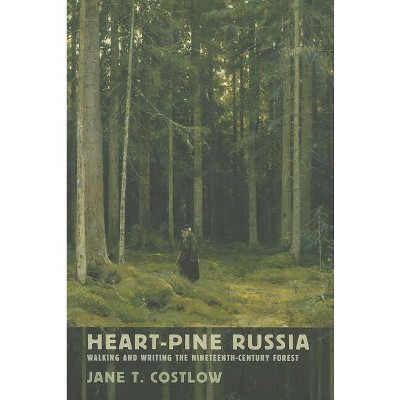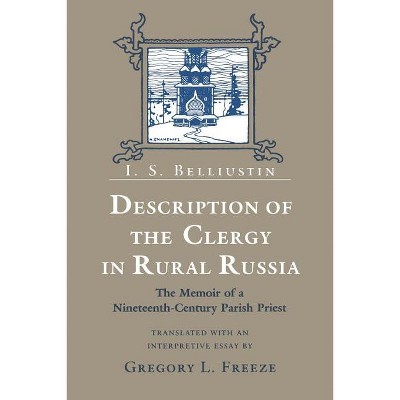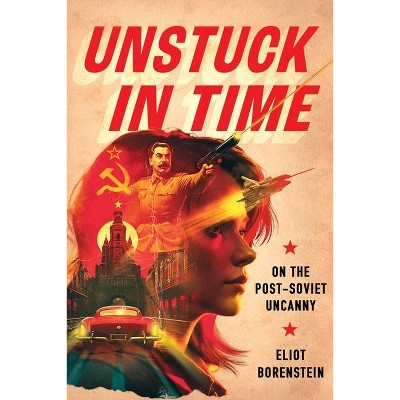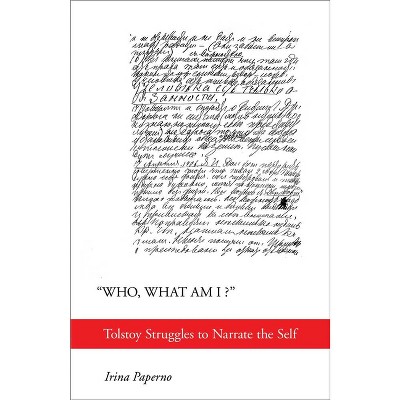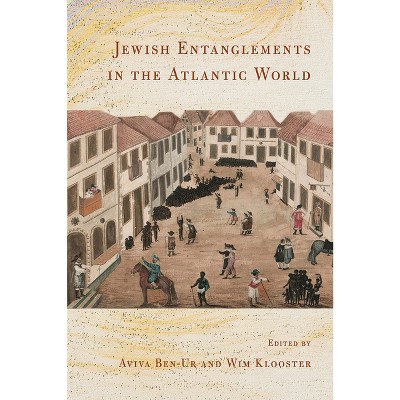About this item
Highlights
- Winner of the AATSEEL Best Book in Literary Studies of the American Association of Teachers of Slavic and East European LanguagesRecording Russia examines scenes of listening to "the people" across a variety of texts by Russian writers and European travelers to Russia.
- About the Author: Gabriella Safran, the Eva Chernov Lokey Professor in Jewish Studies, teaches in the Department of Slavic Languages and Literatures at Stanford University.
- 300 Pages
- Literary Criticism, Russian + Former Soviet Union
Description
About the Book
"Nineteenth-century Russian writers including Dahl, Turgenev, and Dostoevsky, and travelers including Custine and Haxthausen, describe scenes where they and their characters listen to, record, and borrow other people's words. Drawing on linguistic anthropology and media studies, this book explores how these scenes index identities, reference communication technology, and change over time" --Book Synopsis
Winner of the AATSEEL Best Book in Literary Studies of the American Association of Teachers of Slavic and East European Languages
Recording Russia examines scenes of listening to "the people" across a variety of texts by Russian writers and European travelers to Russia. Gabriella Safran challenges readings of these works that essentialize Russia as a singular place where communication between the classes is consistently fraught, arguing instead that, as in the West, the sense of separation or connection between intellectuals and those they interviewed or observed is as much about technology and performance as politics and emotions.
Nineteenth-century writers belonged to a distinctive media generation using new communication technologies--not bells, but mechanically produced paper, cataloguing systems, telegraphy, and stenography. Russian writers and European observers of Russia in this era described themselves and their characters as trying hard to listen to and record the laboring and emerging middle classes. They depicted scenes of listening as contests where one listener bests another; at times the contest is between two sides of the same person. They sometimes described Russia as an ideal testing ground for listening because of its extreme cold and silence. As the mid-century generation witnessed the social changes of the 1860s and 1870s, their listening scenes revealed increasing skepticism about the idea that anyone could accurately identify or record the unadulterated "voice of the people." Bringing together intellectual history and literary analysis and drawing on ideas from linguistic anthropology and sound and media studies, Recording Russia looks at how writers, folklorists, and linguists such as Turgenev, Dostoevsky, and Vladimir Dahl, as well as foreign visitors, thought about the possibilities and meanings of listening to and repeating other people's words.
Review Quotes
Safran's excellent research and analyses on topics ranging from the significance of ringing bells, the impact of affordable paper, and the act of listening as performance art result in a fascinating look at how media, technology, and human imagination worked together to move the educated elites and the common people of 19th-century Russia toward greater understanding of each other. The book helps to reframe and clarify understanding of social change in the period
-- "Choice"Recording Russia is original in several respects.
-- "Slavonic & East European Review"In Recording Russia, Gabriella Safran tells a story about tools that made written records of oral speech, and about the listeners who used them.
About the Author
Gabriella Safran, the Eva Chernov Lokey Professor in Jewish Studies, teaches in the Department of Slavic Languages and Literatures at Stanford University. Her books include The Worlds of S. An-sky, Wandering Soul and The Whole World in a Book.
Shipping details
Return details
Trending Fiction








